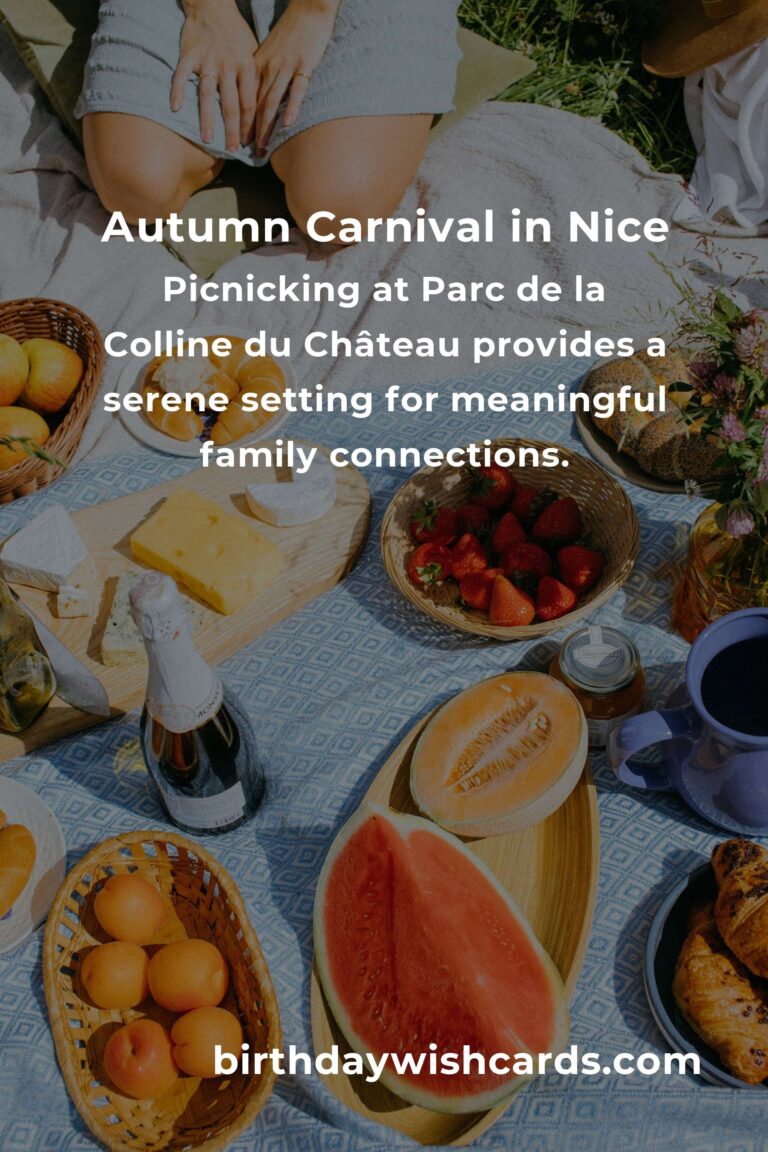
Celebrations are an essential part of human culture, bringing people together, fostering joy, and creating lasting memories. However, the way celebrations are conducted varies significantly around the world. Understanding celebration etiquette can enhance your experience and help you create a memorable event. In this article, we’ll explore various celebration etiquettes across different cultures and provide tips on how to incorporate them into your special day.
The Importance of Celebration Etiquette
Celebration etiquette refers to the social norms and expectations surrounding festivities. Etiquette varies from culture to culture and can affect everything from the type of food served to the way invitations are extended. Knowing celebration etiquette is crucial for many reasons:
- It shows respect for the host culture.
- It helps avoid misunderstandings or offensive situations.
- It enhances the enjoyment of the event.
Global Celebration Etiquette
Let’s explore various cultural celebration etiquettes from around the world to inspire your next event.
1. Asian Celebrations
Chinese New Year
Chinese New Year is a festival celebrated with family reunions, feasting, and the exchange of gifts.
- Red envelopes containing money are given as good luck charms.
- Decorate with red and gold for prosperity.
Remember to avoid giving clocks as gifts, as they symbolize the end of life.
Diwali in India
Diwali, the festival of lights, is one of the most celebrated festivals in India.
- Homes are illuminated with diyas (oil lamps) to welcome prosperity.
- Sweets are exchanged among friends and family.
Guests should offer sweets while greeting and show gratitude with traditional ‘Namaste’ instead of a handshake.
2. European Festivities
Oktoberfest in Germany
Oktoberfest is a massive beer festival held in Munich, characterized by camaraderie and community spirit.
- Reserve tables in advance, as they fill quickly.
- Dress in traditional Bavarian attire.
Make sure to learn some polite German phrases to enhance your interactions.
French Weddings
Weddings in France are marked by elegance and tradition.
- Invitations must be sent well in advance.
- The ‘Vin d’honneur’ is served after the ceremony.
Gifts are usually given as cash or vouchers, and it’s polite to send thank-you notes after the event.
3. African Celebrations
Ugandan Weddings
Ugandan weddings encompass vibrant colors, rich traditions, and communal feasting.
- The groom’s family takes the lead in planning.
- Cultural attire is a must for all guests.
Respect for elders is paramount, and guests should be prepared for a lively event.
New Year’s Celebrations in Ethiopia
Ethiopia celebrates its New Year, known as Enkutatash, around late September.
- Traditional food is served, such as doro wat (chicken stew).
- Singing and dancing are a significant part of the celebration.
Guests should bring small gifts, typically items that can be shared among participants.
Tips for Incorporating Celebration Etiquette into Your Day
Now that you have an overview of various celebration etiquettes, here are some tips on how to incorporate them into your special day:
1. Research and Understand the Culture
If you’re planning a celebration inspired by a particular culture, take the time to research its customs thoroughly. Understanding the significance and meaning behind certain practices can enhance your event’s authenticity.
2. Engage with Local Experts
Consider consulting with someone from the culture you wish to feature. They can provide valuable insights and ensure that you’re respectful of traditional practices.
3. Plan Food and Beverages Thoughtfully
Food plays a central role in many celebrations. Incorporate traditional dishes from the culture you’re celebrating. Ensure you’re aware of dietary restrictions and preferences.
4. Create Invitations that Reflect Cultural Norms
When sending out invitations, consider using language or designs that resonate with the culture. This small touch can make your event feel more authentic.
5. Dress Appropriately
Encourage guests to dress in culturally appropriate attire. This guideline not only shows respect but also makes the occasion more immersive.
6. Be Mindful of Social Norms
Different cultures have different social norms regarding greetings, interactions, and behaviors at celebrations. Familiarize yourself with these to avoid any potential faux pas.
Conclusion
Creating a celebration that respects and honors various cultural etiquettes can make your event truly special. By understanding how celebrations are approached around the world, you can create an atmosphere of inclusivity and joy. Remember to research, engage with others, and plan thoughtfully to ensure your day is memorable for all involved!
Celebrations are an essential part of human culture, bringing people together, fostering joy, and creating lasting memories. Understanding celebration etiquette can enhance your experience and help you create a memorable event. 
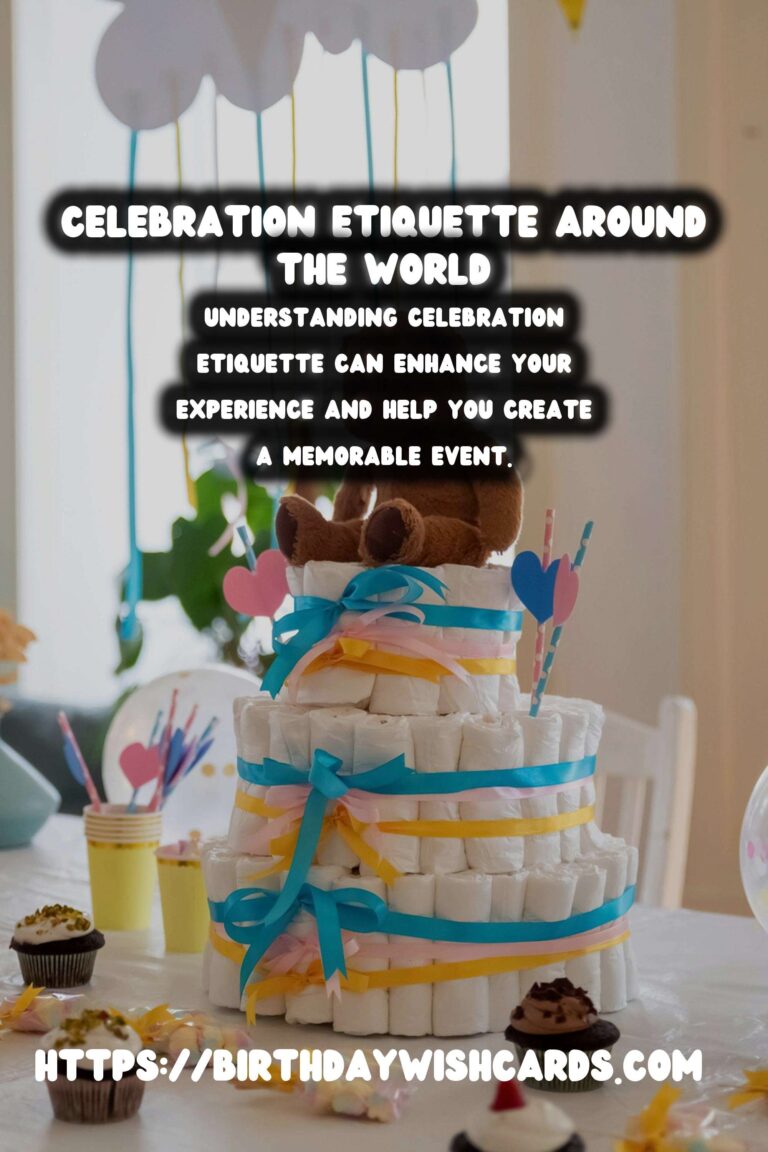

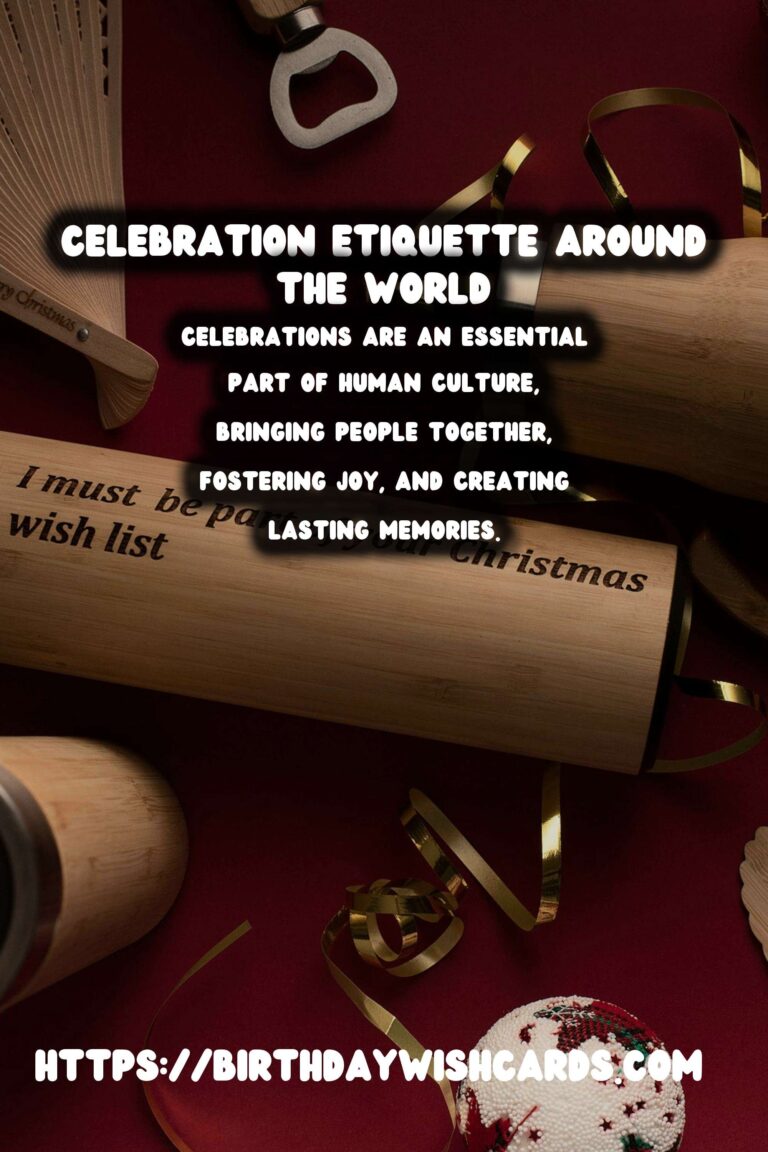
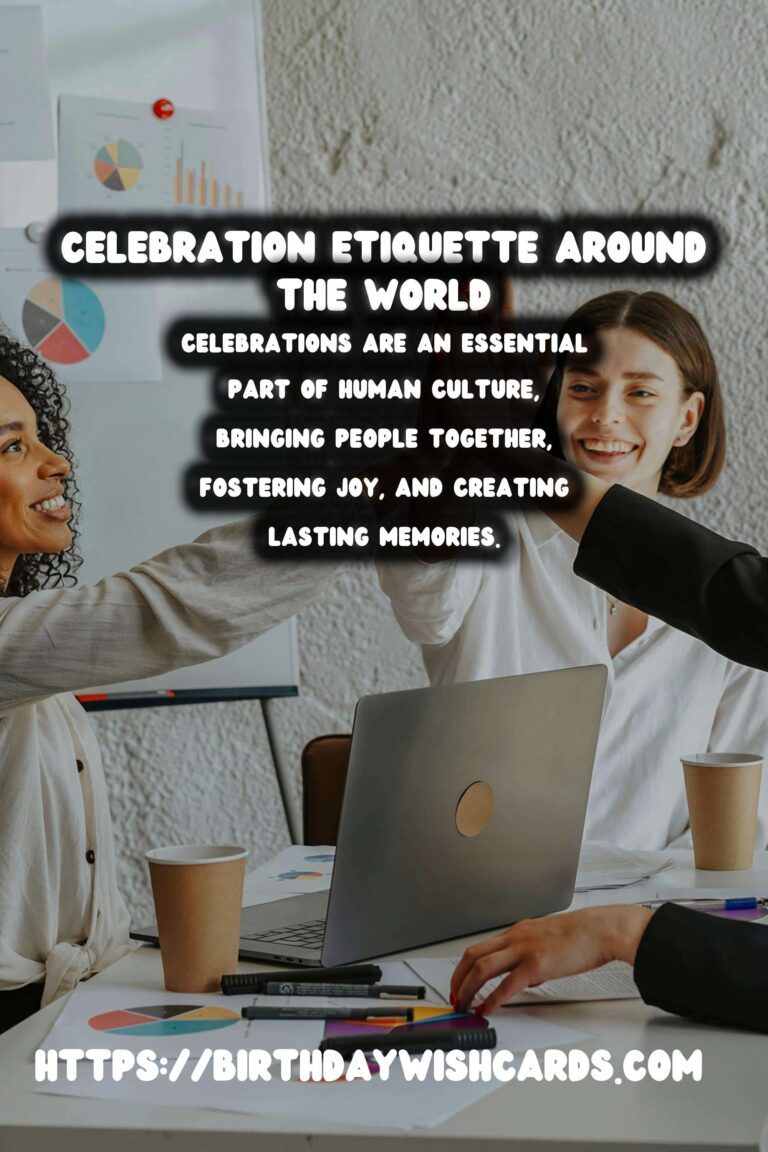

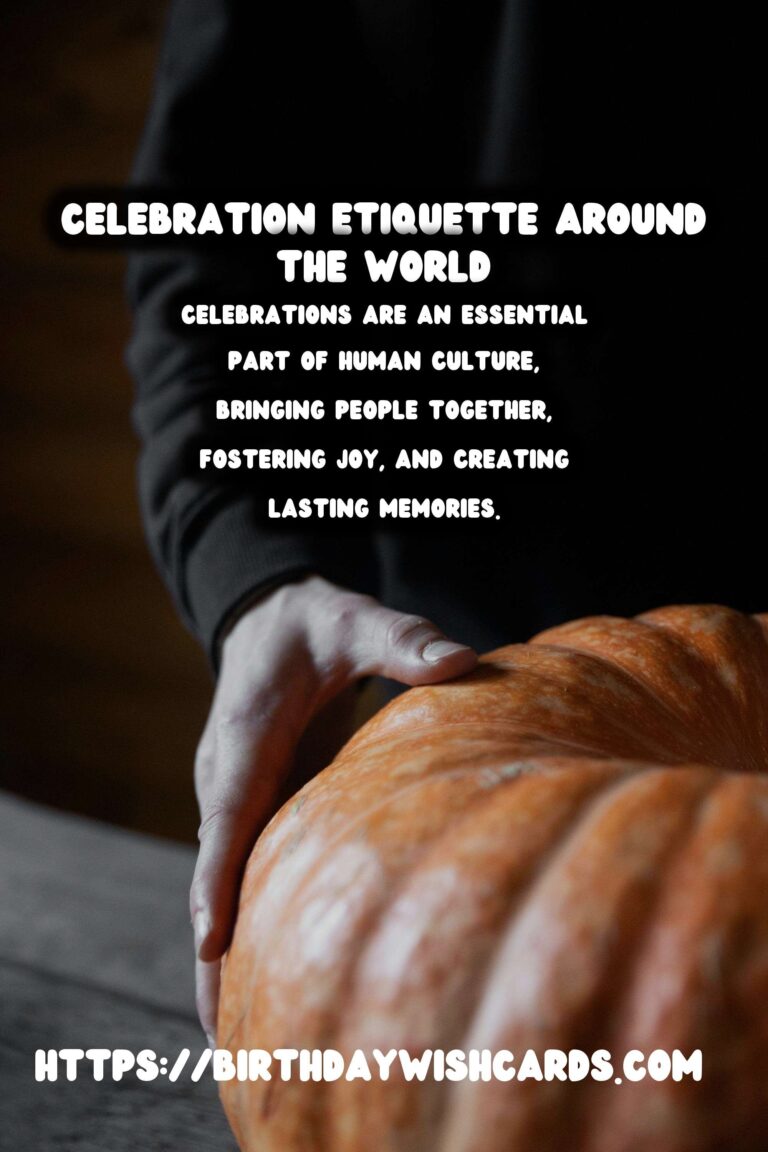

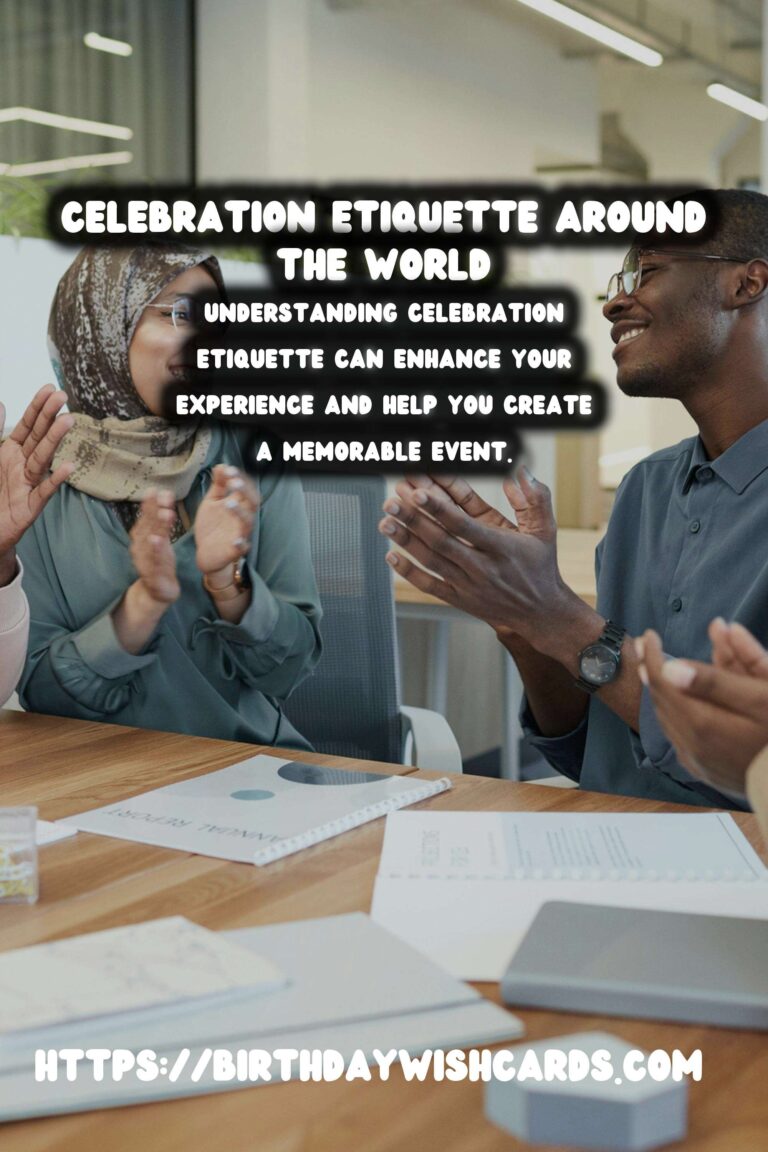
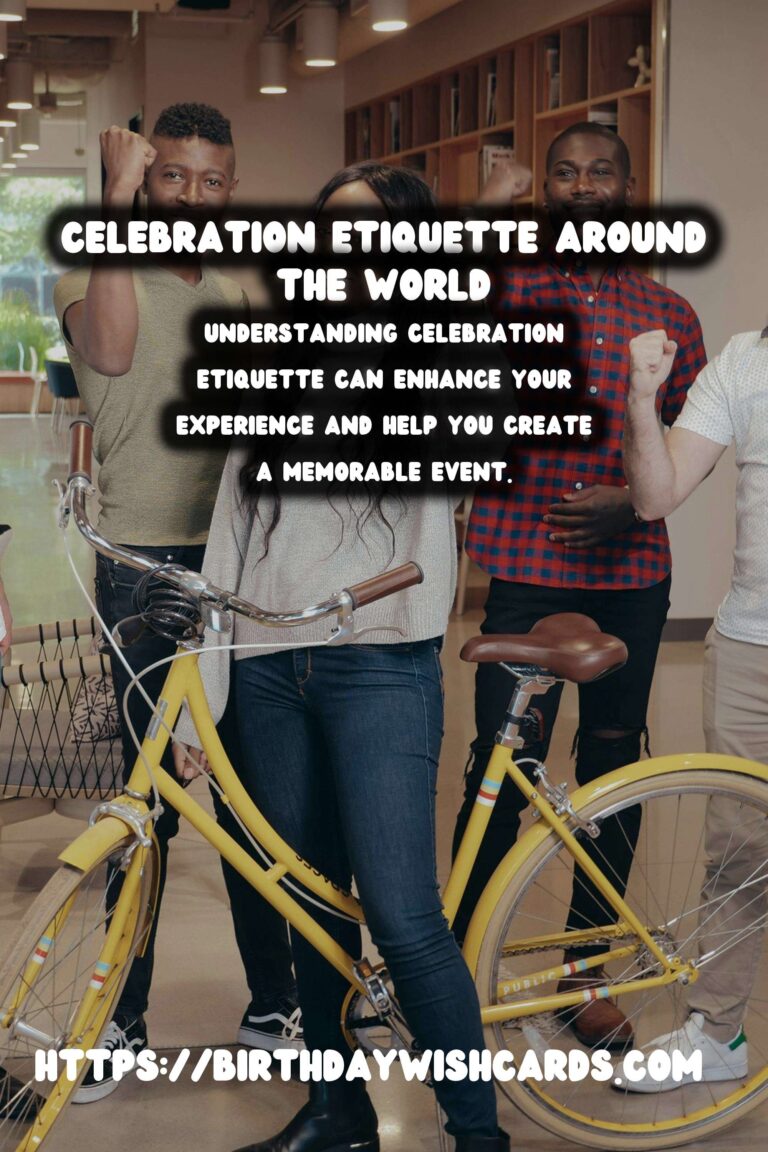
#CelebrationEtiquette #GlobalFestivities


